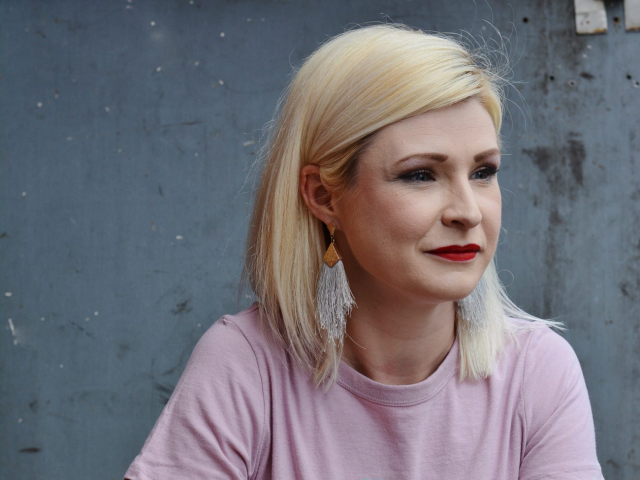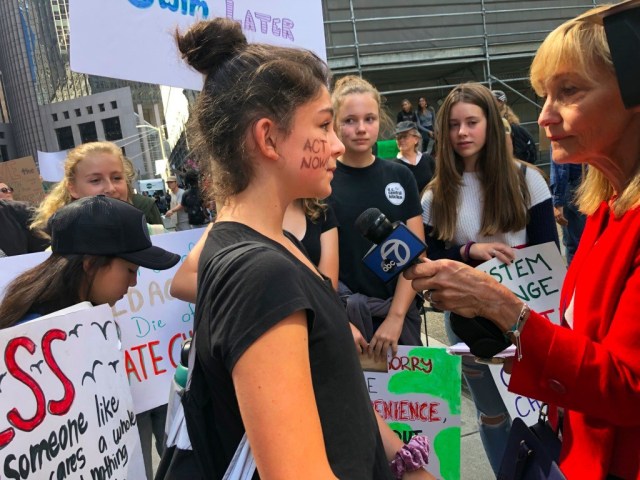
As little girls, we are told we can be whatever we want to be. As women, we are told to be everything everyone else wants us to be: attentive mother, dedicated employee, ladder-climber, shatterer of glass ceilings, loving partner, engaged community member, selfless friend, and tower of strength. We are expected to appear as if we’ve got this whole thing locked down, making sure to Instagram our casual #bossbabe pose as we hold our venti Starbucks coffee.
Women — particularly working moms—are expected to master their careers and achieve new heights. According to the US Bureau of Labor Statistics, in 2018, 71.5% of mothers with children under the age of 18 were employed or seeking employment.
But—and this is a big but—we are also expected to maintain our domestic responsibilities without missing a step. Culture tells us the penance we have to pay for rocking our careers is making sure we don’t forget our most basic female duties: wife, mother, domestic goddess. The World Economic Forum said that in 2019, women were still bearing the brunt of household chores and childcare needs.
So sure, we can have aspirations and lofty career goals, but erasing hundreds of years of the “women’s work” mentality isn’t happening anytime soon.
We can be stellar at our careers, but we must also be the Joanna Gaines of homemaking—otherwise, we are achieving only partial rock-star status.
And this message is constantly echoed on social media. Look no further than Clickin Moms, a $4.7 million DIY-photography business created to teach women how to take perfectly staged photos of life with their families. Why does a business like this exist and thrive? Because we are all desperate to live the image of perfection we are shown every day on social media.
At 31 years old, after being a stay-at-home mom for two years, I decided to make a career shift from journalism to corporate marketing. I had spent those two years at home watching other women on social media becoming what I desperately wanted to be: stylish homemakers, big-deal executives, and excellent mothers to well-dressed, cultured children. I had convinced myself that these images were reality—and I was going to do everything I could to be one of them.
For six months, I put everything I had into becoming this ideal. I got a corporate marketing position with a global company. I enrolled my kids in a local Montessori school and hired a nanny to help with the kids and the house. I bought a new wardrobe. I rocked a pixie cut and spent hundreds on makeup. I spoke up in meetings and was praised for my good ideas and innovative thought process. My husband and I took a trip for our anniversary, and we lived like we didn’t have a care in the world. I was living the good life, just like the influencers I looked up to.
I lived the good life—until the good life completely fell apart.
I got a new boss at work who despised me and made me feel belittled and incompetent. Suddenly, I wasn’t perfect at my job anymore.
My youngest son struggled with special needs. The nanny we hired was mean and intolerant of him. Suddenly, I wasn’t the perfect mother anymore.
I was engaged outside the home with activism and community work, and I was home less than I should have been. Suddenly, I wasn’t the perfect homemaker anymore.
For months, I would wake up every day wondering who I would fail and how badly. Why couldn’t I do it all perfectly when so many others could? What was wrong with me?
I woke up one morning dreading going to work and wishing I didn’t have to get out of bed. I didn’t want to get my two older sons ready for school and get myself all dolled up just to face a day where I was letting everyone around me down. I faced another day of failure, and I knew I couldn’t do it anymore.
In bed, I instinctively scrolled through social media. The influencers I would never be stared back at me, judging me for not being worthy. I knew I had to get out of bed and get on with my day, but a deep black cloud hung around me like a weighted shroud.
I took my kids to school. As we drove, the shroud became heavier and heavier. A loop kept running through my mind: “You’re a failure. You are letting everyone down. You aren’t smart enough to have this job. You aren’t a good enough mother to have these kids. You are not worthy.”
I barely remember dropping my kids off. I hardly remember saying goodbye, or making the decision to drive into oncoming traffic. I do remember deciding not to kill someone else in a horrible traffic accident but to simply walk into speeding traffic once I got to work.
Clearly, I didn’t go through with it. I spent more than an hour on the phone with my pastor, who convinced me not to kill myself. I don’t even remember driving home, or my friend driving me to the mental-health ER, or my husband crying, or being involuntarily checked into an inpatient mental-health facility. The next clear memory I have is of the next morning, waking up on a plastic mattress in a bare room, sobbing uncontrollably in absolute despair and remorse.
The next four days in the hospital were life-changing for me. I didn’t have to make anyone’s dinner, help with anyone’s homework, answer any emails, or even talk to anyone if I didn’t want to. I was able to reset, to take a break from life, to just breathe without feeling guilty. I hit a wall, but it forced me to stop and reevaluate what I wanted my life to be. No one else could make the decision for me, or influence me, or make me feel bad for my choices. I was free.
I decided to leave my job, cut out those who didn’t bring joy to my life, and simplify to the greatest degree. I knew it wouldn’t be easy, especially financially, but I needed to build myself back up in a healthier way that didn’t include high-end clothing and makeup, executive suites, or followers and likes. I needed to be able to love myself again for who I was, not who I thought I should be.
I started by removing social-media apps from my phone. The instant access only tempted me to fall back into old habits. I stopped defining happiness by the material items we owned (and that I needed to share on social media) and scaled back on the events I attended, going only to ones that made me happy, not to ones that I attended just to be seen. I tried to identify (with a therapist) what brought me joy and focused on bringing those things back into my life in my own time.
Take a look at how you define happiness in your own life. Is it defined by social-media likes and follows, by your job, by your homemaking skills? Or does it come from a place of authenticity, of knowing who you are, of being content with the wins and the mistakes? Working moms need to be able to move through our lives on our own terms, in the way that works best for us and our families. When we seek validation from others to know we’re happy, we aren’t truly happy.
Can we really run the world? Of course we can! But let’s do it in a healthier way that accepts flaws and acknowledges how hard this whole thing is.
If you or someone you know is struggling with depression or has had thoughts of harming themselves or taking their own life, get help. The National Suicide Prevention Lifeline (1-800-273-8255) provides 24/7, free, confidential support for people in distress, as well as best practices for professionals and resources to aid in prevention and crisis situations.














